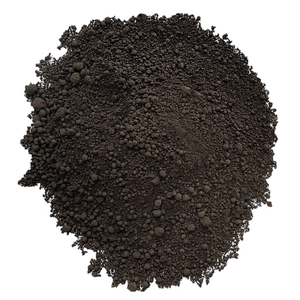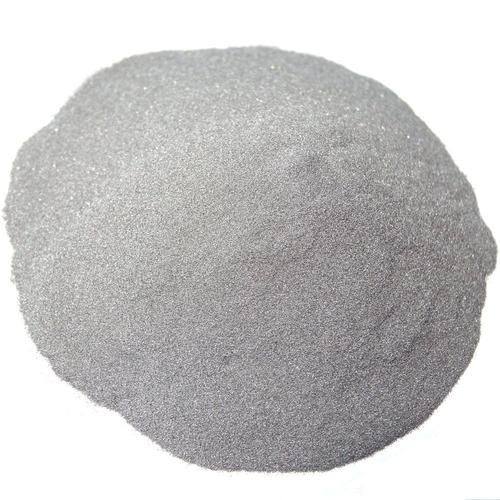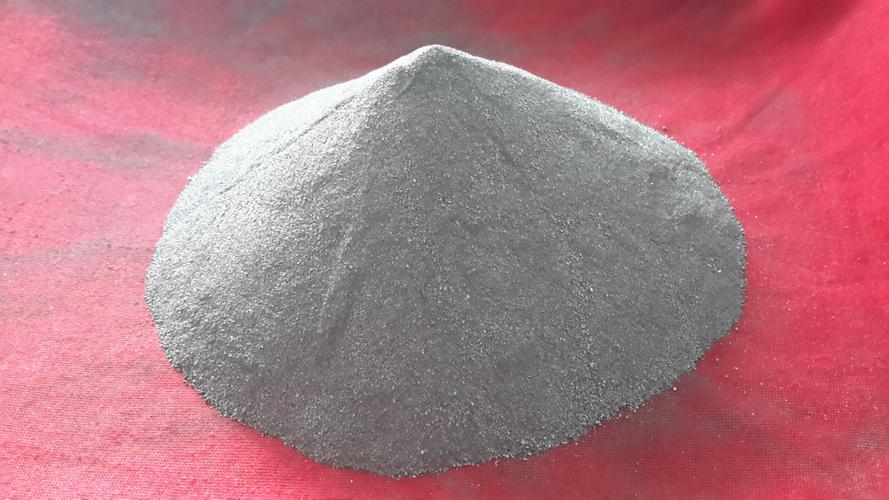Aluminum-based 3D printing powders are specialized materials designed for use in additive manufacturing processes, specifically for Powder Bed Fusion (PBF) techniques such as Selective Laser Sintering (SLS) and Direct Metal Laser Sintering (DMLS). These powders are composed primarily of aluminum, often alloyed with elements like silicon, magnesium, or titanium to improve their mechanical and processing properties. They are gaining popularity due to their lightweight nature, good thermal conductivity, and potential for high geometric complexity in a wide array of applications.
Lightweight: Aluminum is known for its low density, making aluminum-based 3D printed parts ideal for applications where weight reduction is crucial, such as in aerospace and automotive sectors.
Thermal Conductivity: These powders facilitate the production of parts with excellent heat dissipation properties, useful in heat sinks and other cooling systems.
Strength and Ductility: When alloyed correctly, aluminum powders can result in printed parts with a balance of strength and ductility, suitable for functional and structural components.
Corrosion Resistance: Aluminum naturally forms a protective oxide layer, providing inherent corrosion resistance to the printed parts.
Design Freedom: The 3D printing process allows for the creation of complex geometries and lattice structures, taking advantage of aluminum's properties to produce lightweight yet strong components.

(Cnc Machining Parts Aluminum Stainless Steel Brass Iron Titanium POM Nylon Material Custom Hardware Accessories)
It appears that you have provided a list of different materials and their corresponding properties, including aluminum, stainless steel, brass, iron, titanium, POM (polyamide), nylon, and custom hardware accessories. In general, aluminum is known for its corrosion resistance, strength, and availability in a wide range of grades. It is commonly used in automotive parts, aerospace components, and other high-stress applications. Stainless steel is also widely used due to its durability and resistance to corrosion. It can be found in many industrial and consumer products, including kitchenware, bathroom fixtures, and medical equipment. Brass is a versatile material that can be used in a variety of applications, including jewelry, machinery parts, and plumbing components. Iron is another durable material that is commonly used in construction, transportation, and manufacturing. It is often used as a substitute for steel due to its lower cost and lower environmental impact. Titanium is a lightweight, strong, and corrosion-resistant metal that is often used in high-end electronics, aerospace, and military applications. It is also used in medical devices and dental implants. POM (polyamide) is a synthetic polymer that has a number of useful properties, such as flexibility, durability, and low friction. It is often used in parts made from metals and ceramics. Nylon is a highly flexible, durable, and breathable material that is commonly used in clothing, footwear, and other textiles. It is also used in various industrial applications, including packaging and construction materials. Custom hardware accessories can refer to a wide range of items, such as locks, buttons, gaskets, and nuts, that are designed to fit specific parts or systems. These items can be customized in terms of size, shape, color, and other specifications to meet the unique needs of individual applications.

(Cnc Machining Parts Aluminum Stainless Steel Brass Iron Titanium POM Nylon Material Custom Hardware Accessories)
Aerospace: Lightweight structural components, satellite parts, and aerospace fixtures benefit from aluminum's strength-to-weight ratio and design flexibility.
Automotive: Prototypes, lightweight chassis components, and intricate engine parts are being developed using aluminum-based powders to reduce vehicle weight and increase fuel efficiency.
Racing and Sports Equipment: Bicycle frames, automotive racing parts, and sports gear aluminum’s lightweight and durable properties to enhance performance.
Tooling and Fixtures: Complex, custom tooling and fixtures can be rapidly produced with aluminum powders, improving manufacturing efficiency and reducing costs.
Electronics: Heat sinks and enclosures in electronic devices take advantage of aluminum's thermal conductivity and lightweight nature.
Company Profile
Kmpass is a trusted global chemical material supplier & manufacturer with over 12-year-experience in providing super high-quality 3D printing powder and relative products.
The company has a professional technical department and Quality Supervision Department, a well-equipped laboratory, and equipped with advanced testing equipment and after-sales customer service center.
If you are looking for high-quality 3D printing materials and relative products, please feel free to contact us or click on the needed products to send an inquiry.
Payment Methods
L/C, T/T, Western Union, Paypal, Credit Card etc.
Shipment
It could be shipped by sea, by air, or by reveal ASAP as soon as repayment receipt.
Q: Is Cnc Machining Parts Aluminum Stainless Steel Brass Iron Titanium POM Nylon Material Custom Hardware Accessories as strong as traditionally manufactured aluminum parts? A: Depending on the alloy and printing parameters, 3D printed aluminum parts can achieve similar or, in some cases, improved mechanical properties compared to traditionally cast or machined parts, especially when leveraging the design advantages of AM.
Q: What are common challenges in printing with Cnc Machining Parts Aluminum Stainless Steel Brass Iron Titanium POM Nylon Material Custom Hardware Accessories? A: Challenges include managing high thermal conductivity leading to uneven heating and cooling, potential for hot cracking, and ensuring consistent powder bed quality to avoid porosity.
Q: Can Cnc Machining Parts Aluminum Stainless Steel Brass Iron Titanium POM Nylon Material Custom Hardware Accessories be recycled? A: Yes, unused or unsintered powder can typically be collected, sieved, and reused in subsequent prints, contributing to sustainability efforts.
Q: How does the cost of aluminum 3D printing compare to traditional methods? A: While initial setup and material costs can be higher, aluminum 3D printing offers cost savings through reduced waste, faster prototyping, and the ability to produce complex parts in lower volumes more efficiently.

(Cnc Machining Parts Aluminum Stainless Steel Brass Iron Titanium POM Nylon Material Custom Hardware Accessories)



